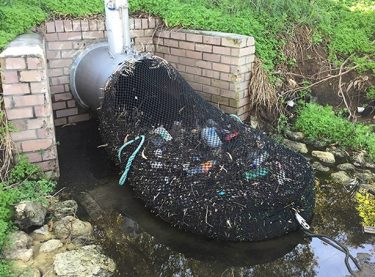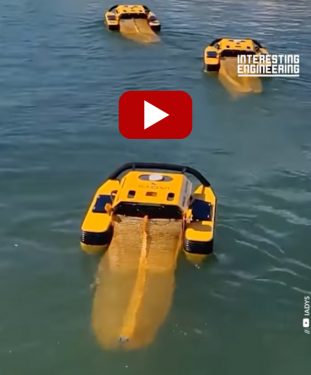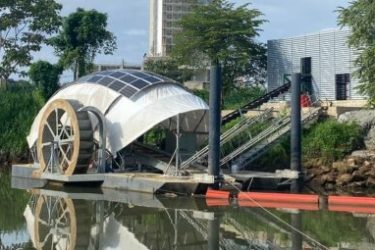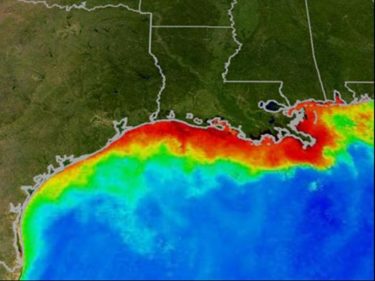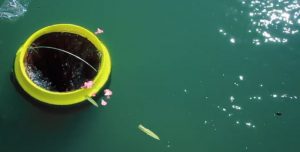Cleaning Water all over the world is absolutely essential. Water is the issue of our time, whether we have too much or too little; if it is clean enough to drink, or if we are poisoning the land and marine life with the toxic chemicals and garbage we dump in the water and place on our crops, gardens, and lawns. We need to work on preserving the clean water we have and cleaning up our oceans, rivers, and lakes on a personal, community, national and global level on a daily basis in some capacity. Let’s stop making the problem worse and start making it better!
It can start in the grocery store, by choosing eco-friendly products for washing, etc., and being careful with what you’re throwing down your sink and into the storm sewers. Baby steps will make a difference if enough people around the world are taking them.
Some plastics are breaking down into microplastics, making marine life less healthy and infiltrating our food supply. Microplastics have been found within our bodies, even in newborns. You can also make choices with your wardrobe. Microfibres are doing the same thing as microplastics and choosing natural fibers will help the planet in more ways than one. Pesticides that are ending up in the water system can be replaced with less toxic solutions, such as Neem Oil, an organic insecticide. Fertilizers creep into the water tables and create dead zones creating low-oxygen areas oceans and other waterways, choked by chemicals.
Below are many innovations and solutions at work to help make cleaning water all over the world a reality.
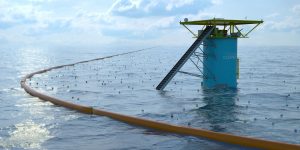
The Ocean Cleanup: Huge barrier capturing floating plastic and debris driven by the current is sent up a conveyor belt for collection
Interesting Engineering: Drainage Nets to Stop Waste from Polluting Waterways
National Geographic: ‘Ten Things you can do to save the ocean’
National Post: How Empowerment and Clean Water Saves Lives ~ One small Canadian charity helps people in 88 countries every year and that number is growing!
Evolo: ‘Seawer’- The Garbage-Seacraper rids water of debris.
The Conversation: Why algae can be our next secret weapon to combat plastic pollution
Science Direct: Algae for plastic biodegradation and bioplastics production
National Geographic: Dead zones are low-oxygen or hypoxic, areas in the world’s oceans and lakes. Because most organisms need oxygen to live, few organisms can survive in hypoxic conditions.
Video of Divers cleaning up the seafloor
Indiegogo: Cleaning the Oceans, One Marina at a Time
TKSST: “Ocean Confetti, the Challenge of Microplastics’
Wikipedia-Clean Oceans Int: Converting Plastic to Fuel
Reefcheck.org – People monitor the reefs to help protect them.
Free Think: Lab-grown coral to help save ocean reefs
Canada’s Ocean Protection Plan

EcoWatch: Environmental Toxins 101: Everything You Need to Know

